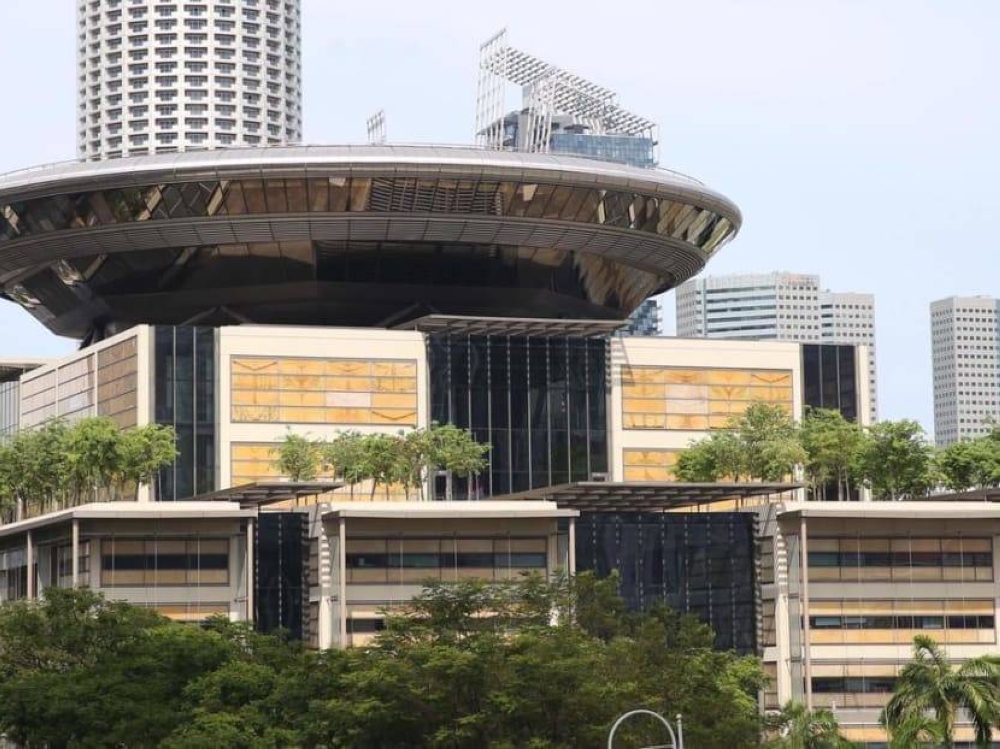SINGAPORE, Nov 12 — A 33-year-old man who was acquitted of murdering a leader of a rival contraband cigarette syndicate will be serving his sentence for the lesser charge of causing grievous hurt after the prosecution failed yesterday (November 11) in an appeal to convict him of murder.
Miya Manik, a Bangladeshi construction worker, was originally accused of slashing syndicate leader Munshi Abdur Rahim's leg in 2016 with a chopper during a clash between two groups vying for control over a field near a dormitory.
The cut inflicted on the night of September 24, 2016, near Tuas View Dormitory, caused by one of three attackers including Manik, led to the death of the 32-year-old Bangladeshi victim.
In 2020, a High Court judge found that the prosecution could not prove beyond a reasonable doubt that Manik was guilty of murder.
Instead, she convicted Manik of a lesser charge of voluntarily causing grievous hurt using a dangerous weapon with common intention and sentenced him to 15 years’ jail and 15 strokes of the cane.
A team of three prosecutors, led by Deputy Public Prosecutor Kumaresan Gohulabalan, appealed against the judge’s decision to acquit Manik of murder.
Yesterday, a three-member Court of Appeal upheld the decision saying that there was still reasonable doubt as to who inflicted the fatal wound that led to Munshi’s death and that there was no evidence that Manik shared a common intention to inflict a fatal injury.
The High Court previously heard that Manik’s syndicate had proceeded that night towards the field, which was considered the “jewel in the crown” of Manik’s syndicate as it generated the highest volume of sales, after a meeting at a canteen.
Many of them were armed with choppers. Upon seeing that Munshi was selling cigarettes in the area, one member of Manik’s syndicate suggested that they head to Tuas South Avenue 6 to talk.
At this point, confusion erupted. The source of the confusion was unclear, with varying accounts from members of Manik’s syndicate. One of them testified that another member, Aziz, called on them to chop the opposing syndicate members while others testified that they heard shouts warning of a police presence.
Munshi started running and was chased by members of Manik’s syndicate. He then stumbled and fell.
The evidence was that Manik and two other members — identified as “Aziz” and “Mitho” — attacked Munshi with choppers while he was on the ground, the apex court said.
A camera installed in a bus parked nearby was able to capture footage of the incident showing that it lasted nine seconds. But the area was not well lit and the footage was unclear.
Somehow, Munshi got away and called the police. Police officers and paramedics later found him lying on his back in a pool of blood and he was pronounced dead at the hospital.
The fatal injury was identified to be a clean, straight cut down his left leg that could have caused significant haemorrhage sufficient to cause death while another on his back contributed to the death.
Forensic evidence revealed that one attacker had been significantly more vicious than the others. While there were many superficial wounds, there was a single deep and long wound on Munshi’s leg that was inflicted with such force that the surrounding bone was fractured.
Aziz and Mitho were not arrested. While some members of Manik’s syndicate were called to testify, they could only relate what happened up to the point where confusion erupted and people started to disperse.
Delivering the judgement yesterday, Justice Tay Yong Kwang said that the High Court judge had rightly acquitted Manik of murder.
The person who inflicted the fatal injury did so intentionally and not accidentally, but that was a “collateral offence” that went beyond the attackers' common intention to cause grievous hurt, he said.
Evidence, however, did not prove beyond reasonable doubt that it was Manik who inflicted the fatal injury, he added.
Separately, a defence team of three lawyers from law firm Eugene Thuraisingam failed in their appeal for Manik’s sentence to be reduced.
“We need only say that we agree with the judge’s approach which is a completely sensible one,” Justice Tay said. “We see no error in her application of the law to the facts as found by her and we agree with the sentence that she arrived at.” ― TODAY





















